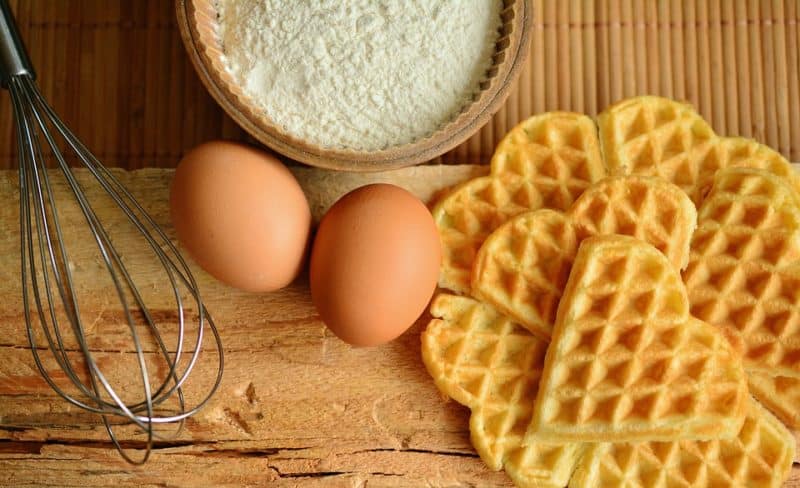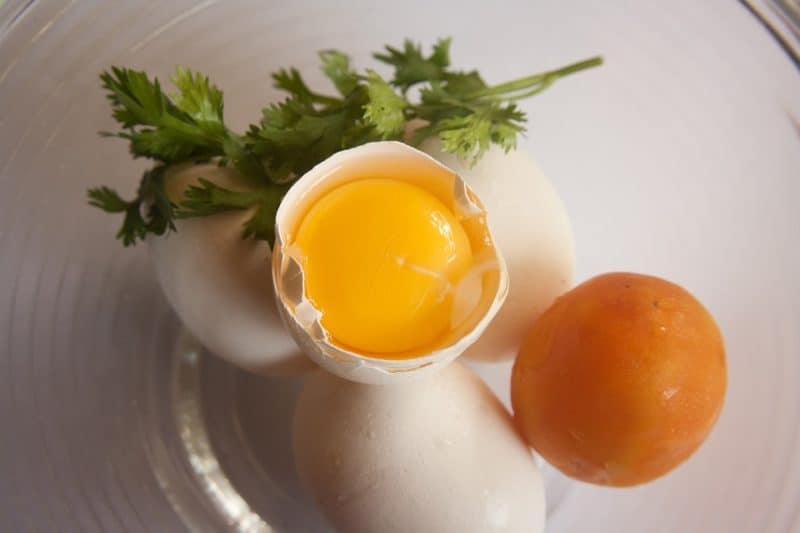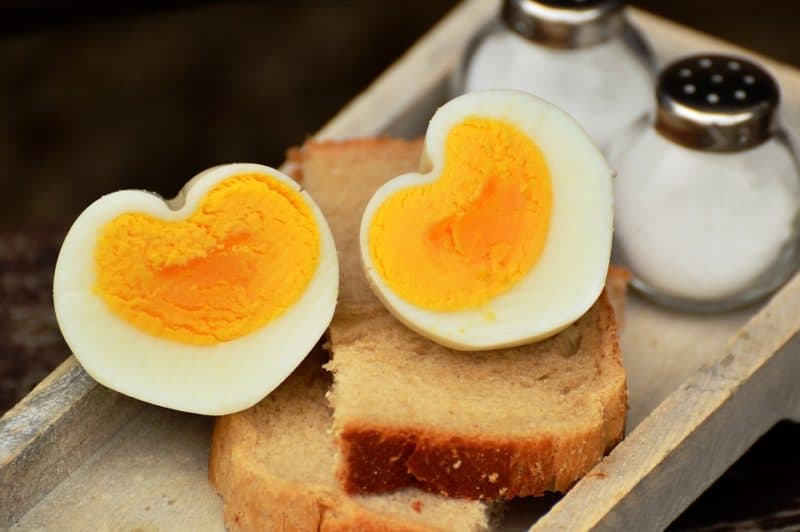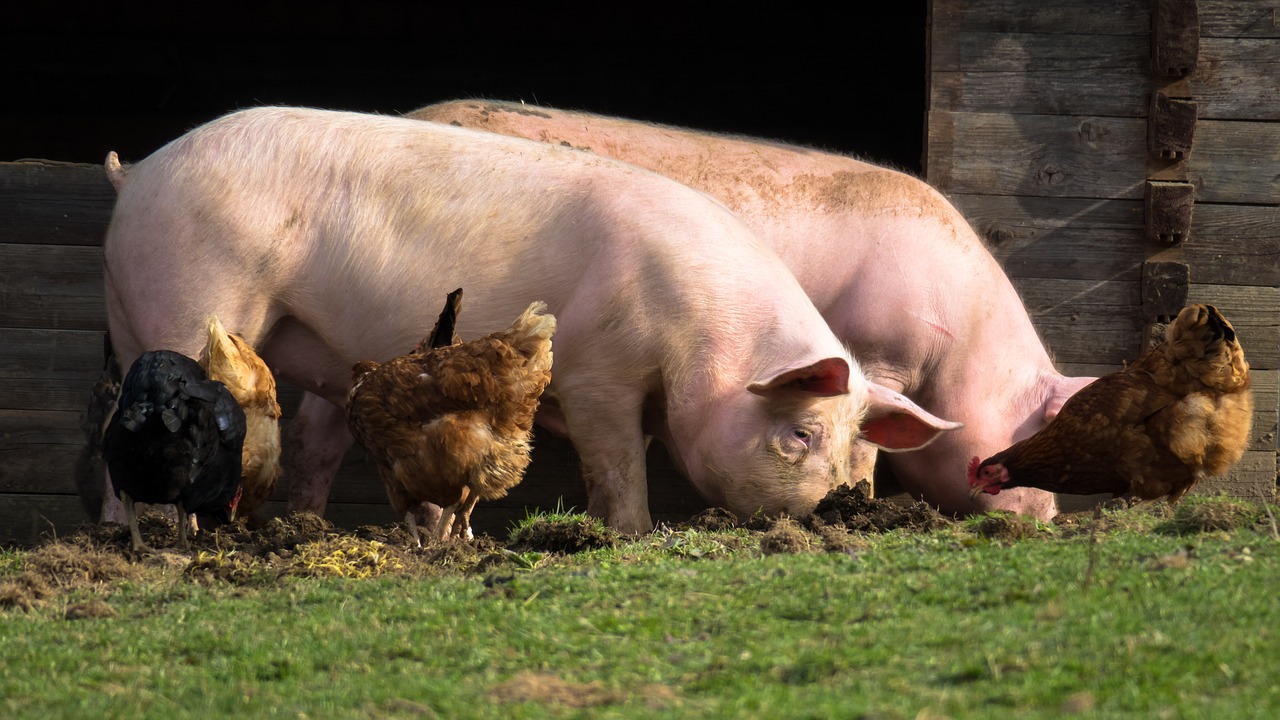If you produce a lot of your own food at home, whether it’s vegetables, meat, or eggs, you have plenty of benefits to enjoy.
Not only is your food not loaded with preservatives or other nasty stuff, but you also enjoy the many health benefits associated with eating farm-fresh food.
However, there is one distinct disadvantage to eating this kind of food, and that is that you don’t always know when it has gone bad. This is especially true with eggs.
Because of their hard shells, it can sometimes be difficult to tell whether your eggs are fresh – or have completely gone by. When you purchase eggs from the grocery store, you have the advantage of sell-by or expiration dates, but with farm-fresh eggs, you simply don’t have that luxury.
Here’s how to tell if your eggs are still fresh – or if it’s time to toss them out.

How Long Do Eggs Usually Last?

One of the easiest ways to tell if your eggs are still fresh is to look at the expiration date. Of course, as I already mentioned, this won’t work if you have your own laying chickens producing eggs for you.
It’s probably best, anyway, as expiration and sell-by dates aren’t necessarily set in stone. These are really just guidelines for you to follow. Here are some good tips on how to collect and store your eggs, which can significantly prolong their shelf life.
In general, a farm-fresh egg is going to last a lot longer than one you purchased at the grocery store. Not only have the eggs not been shipped hundreds of miles to get to your grocery store shelves, but the eggs you’re getting at home are also more likely to be laid by healthy, ethically raised hens.
An egg will last about five weeks in the refrigerator before going bad. While you can certainly eat an egg after this point and not suffer any ill effects, you are going to notice a significant decline in quality after this point.
What Happens if You Eat a Bad Egg?
Most of the time, egg expiry estimates are based on flavor and quality, not necessarily safety. Usually, you are going to notice a serious decline in flavor and texture before you run the risk of suffering any health problems.
In other words, an egg is going to look so unappealing to eat that you probably aren’t going to eat enough of it in order to cause any health problems.
However, there are some health issues that might arise from eating bad eggs. When the eggs start to spoil, the yolk and white might become discolored and you run the risk of contracting a Salmonella infection.
This can cause various symptoms like fever, vomiting, and diarrhea. These symptoms will usually appear within 12 to 72 hours of ingesting the eggs, but again, you’re going to notice that the eggs were rotten before you ate them – meaning that getting sick is highly unlikely to happen in the first place.
4 Simple Hacks to Tell if Eggs are Fresh

Luckily, there are a few easy ways to tell that your eggs have passed their peak date of freshness. Here’s what you need to know.
How to Tell if Eggs are Bad After Cracking
One of the easiest ways to tell if your eggs are fresh is to crack them into a pan or bowl. Take a close look at the egg to figure out whether it’s fresh.
There are some pretty obvious signs that an egg has gone by its expiration date. You will want to avoid eating eggs that have cracks, as this makes it more likely that Salmonella bacteria has entered the egg itself.
A fresh egg will have a bright orange yolk along with thick, cloudy whites. Old eggs won’t stay together in a uniform fashion when you crack them in a pan – instead, they’ll spread way out. They might look thin and watery. The yolk is also more likely to break.
A rotten egg also has a telltale, signature smell. You‘ll notice a strong sulfur smell in particular. This is because, as the egg ages and breaks down, it produces hydrogen sulfide gas. If you detect this smell, toss your eggs.
How to Tell if Uncracked Eggs are Bad
If you want to figure out whether your eggs are fresh without cracking them open, there are luckily several ways you can do this.
One of the easiest ways is to do the egg float test. Some people believe the egg float test to be a myth – while you shouldn’t bet your life on this test, it’s a good way to get a general idea of whether your eggs have gone bad.
To do this, place the egg in a glass of water. A fresh egg will sink, while a bad egg will float. This has to do with the distribution of gasses in the egg that builds up as it ages.
Another way to tell if your eggs are fresh is to candle them. This is a helpful strategy if you aren’t planning on eating your eggs but instead want to incubate them. Candling eggs is simple – all you need is a bright source of light in the darkroom.
Simply hold the light up to the large end of the egg. Tilt the egg, turning it left to right. You’ll be able to see the size of the air cell in the egg.
The fresher the egg is, the thinner the air cell will be. It will tell you how fresh the egg is but may not give you a good idea of whether it’s spoiled or not – you would need to crack the egg to get a good idea of spoilage.
A final option is to hold the egg to your ear and gently shake it. If it’s fresh, it won’t make a sound. But if it’s on the older side, you may hear sloshing inside the egg.
How to Tell if Hard Boiled Eggs are Bad

All of the tips I mentioned above are great ways to tell if an egg is bad before you’ve cooked it. But how do you know if an egg is bad after boiling?
First, conduct a thorough visual inspection. Your eyes and nose can be the best tools in determining an egg’s freshness! Any egg, hard-boiled or not, that has noticeable slimness, probably should be tossed. While certain indicators, like cracks or powder on the egg, can indicate bacteria on an uncooked egg, you probably do not need to worry about this in a hardboiled egg.
A lot of people think that hard-boiled eggs last longer in the refrigerator than their unprocessed counterparts. While there’s some truth to this in that you can hard boil and then freeze eggs that are about to go bad, you need to be careful about stashing them in the refrigerator for long periods of time.
If a hardboiled egg was peeled before you stashed it in the fridge, you are going to knock a couple of days off its shelf life. You really only have about one week after boiling to eat your hard-boiled eggs since you are removing the cuticle of the egg that protects its interior from bacteria.
How to Tell if Egg White is Bad
Need to know if an egg white is bad after you’ve cracked it into a pan? This one’s easy. If the egg white is super runny, there’s a good chance that the egg has gone past its optimal date of freshness. It might still be safe to eat – it just won’t taste as good.
However, if there are any foul smells, you might have some mold or bacteria that has started to develop on the egg. Be safe and toss it.
Practical Uses for Older Eggs

If your eggs are less than fresh, you have several ways you can use them up. One of the easiest methods is to freeze them.
You can freeze cracked eggs or even hard boil them and freeze them. If you have livestock, rest assured that they will not let the eggs go to waste either – chickens and pigs in particular love being fed eggs. Just keep in mind that if you feed eggs back to your chickens, you are going to want to cook them first. If you don’t, you run the risk of encouraging your chickens to eat their own eggs.
Finally, don’t forget that even if you can’t use your farm fresh eggs in the kitchen, you can always crack them open, discard the interior, and use the eggshells for other projects around the home and garden. From fertilizing the garden to keeping pests out of the house, there are plenty of uses for eggshells.
So the next time you’re holding a carton of eggs in your hand and questioning whether they’re safe to eat, don’t stress too much. It’s easy to tell whether eggs are fresh, and even if they aren’t, there are plenty of ways you can use them up around your homestead.












